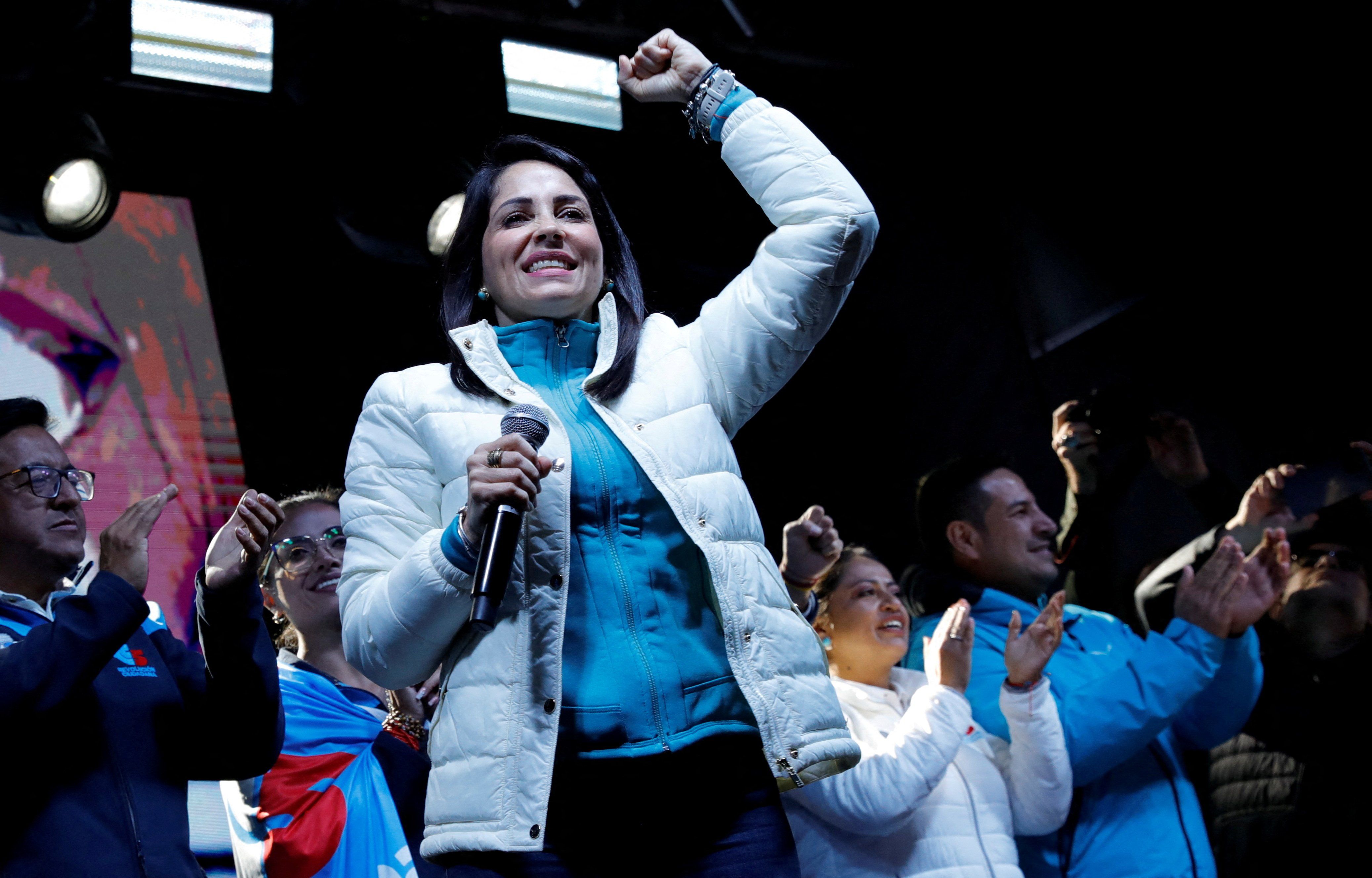Ecuadorian presidential candidate Luisa Gonzalez speaks during a presidential election night event, in Quito, Ecuador, on Aug. 20, 2023.
After an election marred by a high level of violence, including the assassination of presidential candidate Fernando Villavencio, Ecuadorian voters have set the stage for a runoff between left-wing candidate Luisa González and political outsider Daniel Noboa, the scion of a major banana business. With 75% of the votes tallied, González leads Noboa 33% to 24%.
To win, a candidate needed 50% of the vote, or 40% support with a 10-point lead over their closest rival.
Should González win the runoff, the country risks remaining under the influence of disgraced former President Rafael Correa, whom González pledged to retain as an advisor. Since 2017, Correa has lived abroad in Belgium, allowing him to escape his 2020 prison sentence for corruption.
Villavicencio, a former journalist, had harshly criticized Correa and was credited with contributing to his conviction. Known for brazenly calling out corruption, organized crime, and drug traffickers, Villavicencio – who was not leading the pack when he was assassinated – was killed in a hail of bullets after a rally on Aug. 9. Six Colombian nationals have been arrested in connection with his murder.
Other politicians have also been murdered in recent months, but violence has not been limited to politics: Ecuador saw 3,568 violent deaths in the first six months of this year, a nearly 75% jump on the number of murders reported in the first half of 2022. That year ended with the highest number of violent deaths in Ecuador’s history, 4,600, double the total of the previous year – with the uptick blamed on drug trafficking and corruption.
On Sunday, some 100,000 police were dispatched to keep order on election day. A runoff vote will now be held in October. Whoever wins will face the challenge not only of reducing violence but restoring voter confidence in a shaken populace.